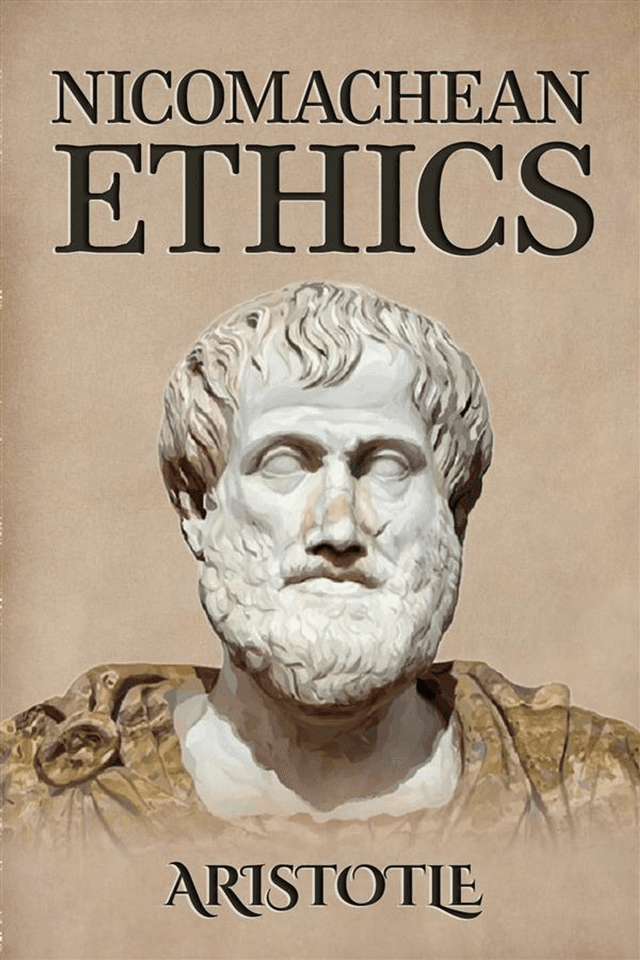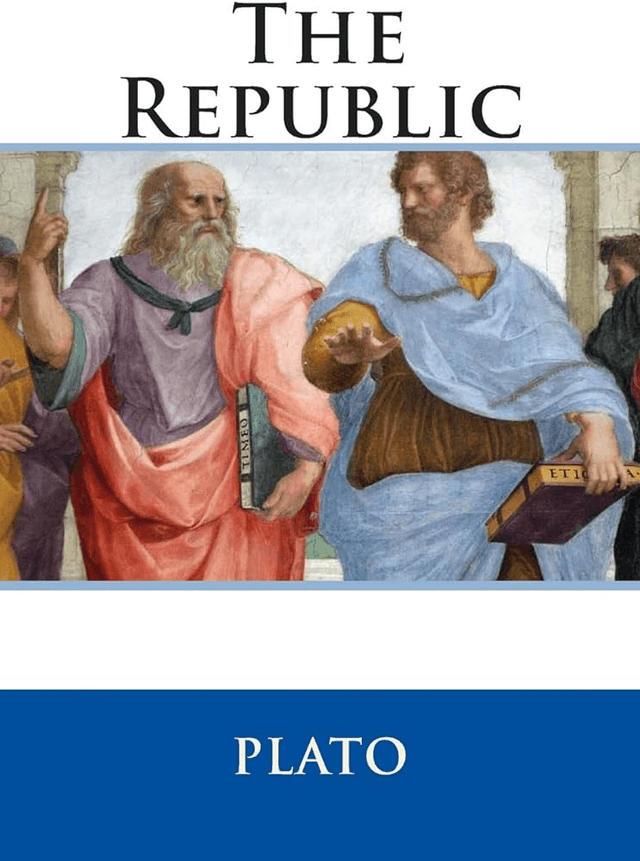Nicomachean Ethics vs. The Republic
Nicomachean Ethics
"Nicomachean Ethics," written by the ancient Greek philosopher Aristotle, is a foundational text in Western philosophy. This work explores the nature of ethical virtue and the path to a good and fulfilling life. Aristotle delves into concepts such as happiness (eudaimonia), virtue (arete), and the importance of practical wisdom (phronesis). The text is a detailed examination of how individuals can achieve moral and intellectual virtues through habitual practice and rational deliberation.
The Republic
The Republic is a Socratic dialogue, written by Plato around 380 BC, concerning the definition of justice, the order and character of the just city-state and the just man—for this reason, ancient readers used the name On Justice as an alternative title (not to be confused with the spurious dialogue also titled On Justice). The dramatic date of the dialogue has been much debated and though it might have taken place some time during the Peloponnesian War, "there would be jarring anachronisms if any of the candidate specific dates between 432 and 404 were assigned". It is Plato's best-known work and has proven to be one of the most intellectually and historically influential works of philosophy and political theory. In it, Socrates along with various Athenians and foreigners discuss the meaning of justice and examine whether or not the just man is happier than the unjust man by considering a series of different cities coming into existence "in speech", culminating in a city called Kallipo...

| Item | Votes | Upvote |
|---|---|---|
| Essential reading for students of philosophy and ethics | 1 | |
| Practical wisdom | 1 | |
| Offers profound reflections on ethics and the good life | 1 |
| Item | Votes | Upvote |
|---|---|---|
| Dense and complex | 1 |
| Item | Votes | Upvote |
|---|---|---|
| Has significantly shaped Western thought | 1 | |
| Timeless relevance | 1 |
| Item | Votes | Upvote |
|---|---|---|
| Dense and complex language | 1 | |
| Abstract concepts can be challenging to grasp | 1 |
Frequently Asked Questions
Nicomachean Ethics by Aristotle is a foundational text that delves deeply into the nature of ethical virtue, practical wisdom, and the path to a fulfilling life. It offers practical wisdom and profound reflections on ethics and the good life. However, it is dense and complex. On the other hand, The Republic by Plato examines the meaning of justice and the just life through a Socratic dialogue, introducing abstract concepts such as the theory of forms and the philosopher-king. It has significantly shaped Western thought and remains timeless, though its language and abstract ideas can be challenging. The choice between the two depends on whether you seek a detailed examination of individual virtues (Nicomachean Ethics) or a broader discussion on justice and political theory (The Republic).
Both Nicomachean Ethics and The Republic are immensely influential in Western philosophy, but they have influenced different areas. Nicomachean Ethics is more influential in the realm of personal ethics and virtue theory, offering practical wisdom and reflections on the good life. Conversely, The Republic has had a greater impact on political theory and philosophy, discussing justice, the ideal state, and the role of philosophers in society. The Republic's influence extends widely across political thought and theory, whereas Nicomachean Ethics is foundational for ethical philosophy.
Both Nicomachean Ethics and The Republic are considered dense and complex, making them challenging for beginners. Nicomachean Ethics focuses on practical wisdom and virtues, which might appeal to those interested in personal ethics. However, its complexity can be daunting. The Republic, with its Socratic dialogue format, discusses justice and political theory and introduces abstract concepts like the theory of forms. This format can also be challenging for beginners due to its dense language and abstract ideas. The accessibility of each text may depend on the reader's interests and background in philosophy.
Nicomachean Ethics by Aristotle primarily focuses on individual virtues, practical wisdom, and the pursuit of a fulfilling life through ethical behavior. Key themes include happiness (eudaimonia), virtue (arete), and rational deliberation. In contrast, The Republic by Plato deals with broader themes such as justice, the ideal state, and the role of the philosopher. It explores the concept of justice both in the individual and in society, and introduces ideas like the theory of forms and the philosopher-king. While Nicomachean Ethics is centered on personal ethics, The Republic addresses political theory and the structure of a just society.
'Nicomachean Ethics,' written by the ancient Greek philosopher Aristotle, is a foundational text in Western philosophy. This work explores the nature of ethical virtue and the path to a good and fulfilling life. Aristotle delves into concepts such as happiness (eudaimonia), virtue (arete), and the importance of practical wisdom (phronesis). The text is a detailed examination of how individuals can achieve moral and intellectual virtues through habitual practice and rational deliberation.
Pros of 'Nicomachean Ethics' include it being essential reading for students of philosophy and ethics, offering practical wisdom, and providing profound reflections on ethics and the good life. However, a con is that the text can be dense and complex.
'The Republic' is a Socratic dialogue written by Plato around 380 BC. It addresses the definition of justice and examines the order and character of the just city-state and the just man. The dialogue explores whether a just man is happier than an unjust man through discussions on various topics, including the theory of forms, the immortality of the soul, and the roles of philosophers and poets in society.
Pros of 'The Republic' include its significant influence on Western thought and its timeless relevance. However, the dialogue is known for its dense and complex language, and the abstract concepts can be challenging to grasp.
'The Republic' was written by the ancient Greek philosopher Plato.
'The Republic' is considered an influential work because it has significantly shaped Western philosophical and political thought. Its discussions on justice, the ideal state, and the role of philosophers have had a lasting impact on intellectual history.
Key themes in 'The Republic' include justice, the ideal state, the theory of forms, the immortality of the soul, and the roles of philosophers and poets in society.



